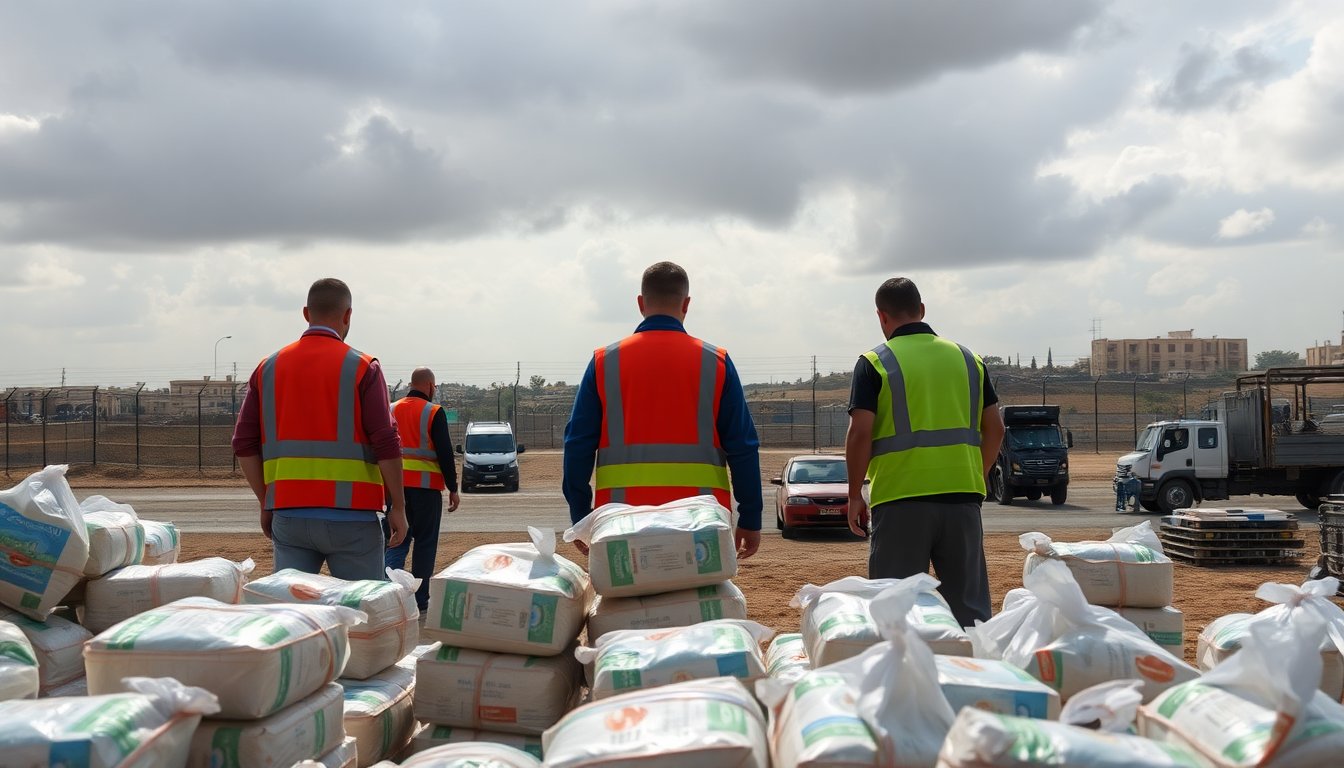Table of Contents
In a significant escalation of the ongoing conflict, Israel has implemented stricter regulations on the flow of humanitarian aid into the Gaza Strip. This move follows Hamas’s decision to return the bodies of four individuals who had been held captive. The situation has become more complex with recent statements from former President Donald Trump, who asserted that Hamas must either disarm voluntarily or face forceful disarmament.
The decision to limit aid has raised international concerns, with many questioning the humanitarian implications for the residents of Gaza. Understanding the broader context of these developments is crucial, as they may significantly impact future peace efforts.
Humanitarian implications of aid restrictions
The restrictions imposed by Israel are likely to worsen the already dire humanitarian situation in Gaza. With limited access to essential supplies such as food, medicine, and clean water, the population faces severe shortages. Humanitarian organizations have consistently warned that such conditions can lead to a humanitarian crisis, exacerbating the plight of civilians caught in the crossfire.
Impact on the civilian population
Gaza has been grappling with poverty and infrastructural challenges for years, and the recent aid limitations could further deteriorate living conditions. The blockade has already hampered economic development, making it increasingly difficult for residents to meet their basic needs. The reduction of aid could lead to an increase in malnutrition and health issues among vulnerable populations, particularly children and the elderly.
International response to aid limitations
Global reactions to Israel’s decision have varied, with some countries expressing support for Israel’s right to secure its borders, while others have condemned the move as a violation of human rights. International humanitarian organizations are calling for unrestricted access to aid, emphasizing that the civilian population should not be punished for the actions of militant groups.
The significance of Hamas’s actions
Hamas’s recent release of the bodies of four captives signifies a complex interplay of military and political strategy. This action may be an attempt to shift public perception and demonstrate a willingness to negotiate, despite ongoing hostilities. However, it raises questions about the treatment of captives and the broader implications for future exchanges.
Negotiation and political strategy
This release could be perceived as a tactical move by Hamas to garner sympathy and leverage in future discussions. The political ramifications of such gestures are critical, as they can influence public opinion and international diplomatic efforts. Observers note that both sides must navigate these actions carefully to prevent further escalation.
Trump’s stance on disarmament
As tensions rise, Trump’s remarks regarding Hamas’s disarmament have added another layer to the ongoing discourse. His assertion that Hamas must either disarm or be disarmed through force raises alarms about the potential for increased violence in the region. The implications of such a stance could be profound, suggesting a more aggressive approach to dealing with militant groups.
Looking ahead: Prospects for peace
Despite the current turmoil, the pursuit of peace remains a crucial objective for many stakeholders involved in the conflict. The interplay between military actions, humanitarian needs, and international diplomacy will shape the landscape of future negotiations. Understanding the motivations behind Israel’s restrictions and Hamas’s responses is essential for developing effective solutions to this longstanding crisis.
Ultimately, the path to peace is fraught with challenges, but recognizing the humanity of those affected on both sides is vital. As the situation continues to evolve, the global community must remain vigilant and advocate for the rights and well-being of civilians in Gaza and Israel alike.


